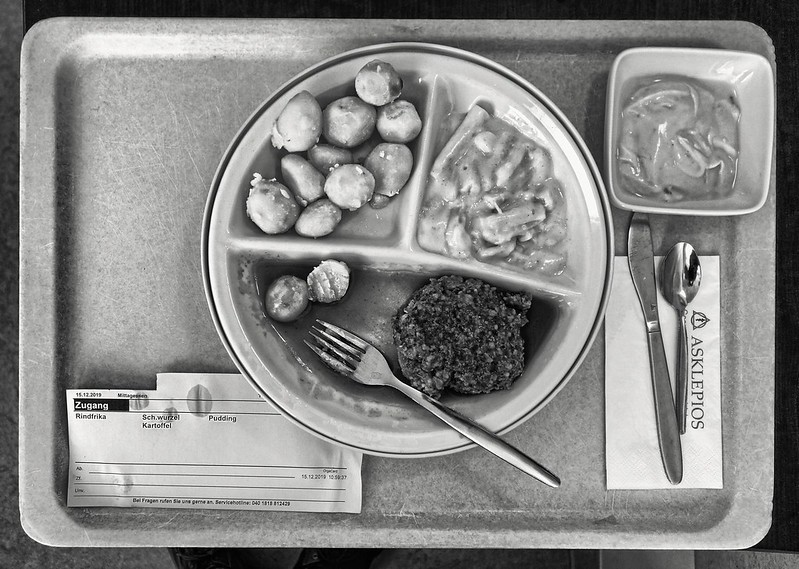It was the first day of my inpatient internal medicine rotation and I felt as excited as ever to be in the hospital, participating in rounds. “How’s your day going?” I asked automatically in a cheery tone as I entered my first patient’s room.
“How do you think it’s going? I’m in the hospital,” the patient snarled dismissively. I stood there, a deer in the headlights, completely caught off guard. While I figured that her intentions were not to be rude or malicious, I’d be lying if I said I didn’t think about backing away slowly and never looking back. Instead, I considered what it would be like if it were me laying in that hospital bed. My heart immediately sank as I thought about the implications of my seemingly innocuous question.
I pictured being in an unfamiliar environment, constantly being barged in by unfamiliar faces spewing out medical jargon, leaving me more confused than before. Never knowing when the next needle stick was coming. To me, they were colleagues, but to her, vampires out to retrieve her blood at all odd hours of the night. Understandably, it wasn’t going great, who wants to be in the hospital? She was simply stating the obvious, something that I had failed to consider as a stranger looking in from the outside. Of course, my exaggerated dark fantasy isn’t the experience for every patient — I’d like to think it never is — but I suspect that that would be wishful thinking.
I am privileged to work in a profession where we are provided the medical knowledge to treat any physical issue to the best of our ability. However, amidst a prevalent “I can fix it” attitude, it’s possible to lose the empathy and emotional connection that differentiates us from a computer going through a protocol or algorithm. As hospital staff, we are expected to leave that room and go on with our lives, on to the next patient, each new conversation further detaching us from the previous, until we get to go home to our families and fully disconnect for the night. And when we come in the next day, well rested from a good night’s sleep in our own bed, we can fall into the trap of assuming everyone else has decompressed as well.
But what about this patient who has been stuck in her hospital bed that entire time? I thought about the monotonous hours upon hours that she has spent in that barren room, without much to keep herself occupied aside from her own thoughts and situation. Could she have been ruminating on something said to her or an ambiguous test result from the previous day as I walked in? Should she really be expected to greet me with a smile and enthusiasm while fear and uncertainty linger in the air? These were sobering questions that I pondered, but ones that humbled me enough to stay in that room.
I pulled up a chair next to the patient’s bed and took a moment to really look at her. In that instant, I realized that there’s so much to learn about a patient aside from what they say; her appearance, antsy body language, irritable tone, poor eye contact. To me, what makes truly empathetic physicians, is their ability to read the situation and adjust ways of communicating to best fit what the patient needs in that moment.
It became clear that this patient was distressed and unhappy; maybe it had less to do with the illness that got her here and more with the baggage that comes along with being in the hospital. I got on her eye-level, gave her my undivided attention and said, “Let’s forget about the medical stuff for a minute. What else is bothering you today?” She immediately looked up at me with a surprised expression. “Well since you asked, I’m worried about my dogs at home, my family is driving me crazy asking how I’m doing every 5 minutes even though I feel fine, I’m bored as ever in this room and I’m stressed just thinking about how big of a hospital bill I’m going to get once this is all said and done.” We looked at each other silently for a moment and I said, “You forgot that the food here is terrible.” To my surprise, she broke out into a smile.
From then on, her demeanor and our interactions underwent a complete transformation. While we used humor as a defense mechanism, it also opened the door to having serious conversations about the psychosocial issues she was going through. I learned a lot from this patient. The chief complaint on her chart read ‘chest pain,’ but there was so much more to the patient than that.
While it constitutes my workplace, the hospital is inherently an unappealing place to be in a patient role. By giving patients an invitation to speak their mind beyond the medical aspect of their care, we can make this scary place a little less uncomfortable; whether that’s with an extra pillow, sneaking a diet coke from the doctor’s lounge, a little humor or just being a body to vent to.
Image credit: Rindfrika (CC BY-NC-ND 2.0) by txmx 2

